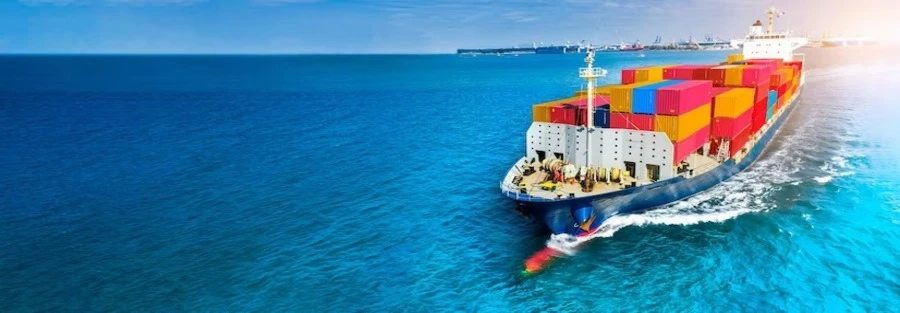You must have heard about the cargo ship, Dyros. Rough weather forced a dramatic route change and the loss of around 90 containers on March 21, 2022. Also, the container carrier Rena broke and sank in 2011. Another story was that of MSC ARIES. On February 2, 2021, the containership lost part of her cargo, around 41 empty containers.
The above incidents highlight how costs can escalate and affect shipping companies. When things get difficult at sea, the prospect of successfully salvaging the situation is anything but simple. As a shipping company, you must comply with regulations, manage risks, and maintain financial security.
Marine cargo insurance is a type of insurance that provides coverage for goods that are being transported by sea. It's important essential for you businesses that import or export goods to have this type of insurance in place, as there are many risks involved in shipping cargo over long distances. In this blog, we'll take a closer look at what marine cargo insurance is, why it's important, and how it works.
What is Marine Cargo Insurance?
Marine cargo insurance is a type of insurance policy that provides coverage for covers cargo that is being transported by sea. It covers the loss or damage of cargo from any external cause, such as theft, fire, or a natural disaster. The policy can be Policies are customized to meet the shipper’s specific needs of the shipper and can cover everything from the cost of the goods to the cost of transportation.
Why is Marine Cargo Insurance Important?
Cargo with respect to shipping, are exposed to various types of risks. Uncontrollable external factors bring significant loss to a business. So, opting for preventive measures before the cargo is damaged is a prerequisite for companies that ship frequently.
Marine cargo insurance is important for several reasons. What marine insurance covers? First, it protects the shipper from financial loss in the event that the cargo is lost or damaged during transport. Without this This type of insurance, is required for the shipper would to be responsible for bearing the cost of any loss any loss or damage to the cargo, which could be very expensive.
Second, marine cargo insurance helps to manage risk. Shipping cargo by sea involves many risks, including the risk of piracy, natural disasters, and accidents. By having With insurance in place, shippers can transfer some of this risk to an insurer, which can help to mitigate the financial impact of any loss or damage.
Third, marine cargo insurance is often a requirement for businesses that import or export goods. Many countries require shippers to have insurance in place before importing or exporting they can import or export goods, and failing to comply with these requirements can result in delays or penalties.
How Does Marine Cargo Insurance Work?
Marine cargo insurance works by providing coverage for cargo that is being transported by sea. The policy can be customized to meet the specific needs of the shipper and can cover everything from the cost of the goods to the cost of transportation.
When a shipper purchases marine cargo insurance, they pay a premium to the insurer. In exchange, the insurer agrees to provide coverage for the cargo during transport. If the cargo is lost or damaged during transport, the shipper can file a claim with the insurer to recoup their losses.
Considerations for Marine Cargo Insurance
- Understand Policy Coverage: Before selecting a marine cargo insurance policy, it is crucial to carefully review the terms and conditions. Reviewing the terms and conditions before selecting a marine cargo insurance policy is crucial. Understand what is covered, excluded, and any limitations or deductibles that may apply. Seek clarification from the insurer if needed to ensure the policy aligns with your specific cargo requirements.
- Evaluate the Insurer: Choose a reputable insurance provider with expertise in marine cargo insurance. Look for a company with a strong financial standing, a track record of prompt claims settlement, and excellent customer service. Engaging a knowledgeable insurance broker can also help navigate the complex insurance landscape.
- Assess Cargo Value: Accurately assess the value of your cargo to determine the appropriate insurance coverage. Under insuring can result in insufficient compensation in the event of loss or damage while over insuring may lead to unnecessary costs. Work closely with your insurer or broker to establish the correct insured value.
- Understand Liability Limits: Familiarize yourself with the liability limits of the carrier responsible for transporting your goods. These limits may be set by international conventions or incorporated into the carrier's terms and conditions. Additional insurance coverage may be necessary Iif the carrier's liability is not insufficient to cover potential losses., additional insurance coverage may be necessary.
Marine insurance is a vital component of international trade, providing protection and risk mitigation for businesses involved in transporting goods across the globe. By understanding the importance of marine cargo insurance and carefully selecting the appropriate coverage, companies can safeguard their cargo, comply with regulations, build trust with partners, and navigate the complexities of the shipping industry with confidence. Investing in marine cargo insurance is not just a prudent business decision but an essential aspect of responsible global trade.
DgNote - Discover the benefits of partnering with us for Marine Cargo Insurance.
Many companies out there offer cargo insurance. But DgNote's platform provides a variety of flexible policies based on your requirements. Also, all your standard commodities are covered against damage while your goods are in transit. With insurance experts to guide you through the process, we help you navigate the complicated rules and regulations to resolve claims quickly.
Prevention is better than cure
So, for any queries about marine policy, contact us!
For more information contact us at sales@dgnote.com or +91-90040 54921.



